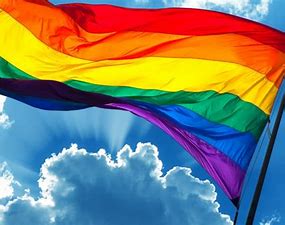According to survey by NielsenIQ, group spent R$10.9bn in 12 months through March; more brands support Pride Parade
06/17/2022

The LGBTQIA+ population spent R$10.9 billion in retail and e-commerce purchases in the 12 months through March, which represents 5.5% of the consumption of Brazilian households in the period. The average spending of this public, per household, is 14% higher than the general average. The data are included in an unprecedented survey conducted by the research company NielsenIQ in April and May this year.
The study heard representatives from 8,000 households in Brazil, in a representative sample of the Brazilian population profile, in addition to 2,300 online consumers. According to the survey, at least 5.5% of households in the country have at least one LGBTQIA+ member.
“This public is expressive and consumes at various levels, with specific characteristics and high purchasing power,” says Marcelo Osanai, head of e-commerce and pride at Nielsen IQ. He ponders that the percentage of 5.5% of homes with at least one LGBTQIA+ person may be higher than indicated by the interviews, since the question “if there is someone LGBTQIA+ in the house” is asked to a family member, who may not know or be embarrassed to answer. “It’s still a taboo question,” he says.
Even so, the study offers a glimpse of the profile of the “rainbow homes,” as they are called in the study. Most have more than one person and have pets; 29.2% have high income (compared to 27% of the general households); 13.6% have people with college or post-graduation degrees (compared to a general rate of 9.8%); they spend more on convenience products (ready-made food and beverages) and personal care.
Of all those consulted, 30% say they are willing to spend more with brands that support gender diversity. For 84.4% of the LGBTQIA+ households and 56.2% of the other households, the actions of companies in favor of this cause reflect positively on their image.
“Regardless of whether the household is LGBT or not, the influence of affirmative actions by brands is being noticed and generates real impact on the purchase decision,” says Mr. Osanai.
Companies are more attentive to this. The 26th São Paulo LGBT+ Pride Parade, which takes place this Sunday, has the sponsorship and support of 13 brands, such as Terra, Smirnoff, Burger King, Amstel, Mercado Libre, Jean Paul Gaultier and Vivo. “In the first years, we had practically no sponsorship. We heard from many companies it was a delicate topic,” says Diego Oliveira, member of the São Paulo LGBT+ Pride Parade Association.
The scenario began to change more strongly since 2016. In recent years, he highlights, the global LGBT pride movement has grown, as well as internal diversity actions in companies, which realized they needed to update.
This year, 3 million people are expected to take part in the event on Paulista Avenue and its surroundings. The first edition, in 1997, gathered about 2,000.
Telefónica’s Vivo is making its debut this year as a sponsor. “We have an extensive performance in diversity on several fronts. We believe that we have to have a very solid internal performance to reverberate outwards,” says Marina Daineze, director of brand and communication at Vivo. For five years the company has had affinity groups, as the groups of employees belonging to minorities are called, which are created to dialogue with all departments of the company.
“We know the power of communication in the formation of a more inclusive society,” says Rony Santos, manager of Diversity, Equity and Inclusion at Grupo Boticário. The company was one of the pioneers in showing gay couples in its advertisements. In 2015, its Valentine’s Day campaign, which featured men and women exchanging gifts with each other, generated much controversy and a lawsuit in the Brazilian Advertising Self-Regulation Council (Conar).
The group not only continued but intensified its work with topics related to diversity inside and outside the company. Its LGBT affinity group, with more than 400 employees, participates in product development meetings, as well as in the formulation of internal policies. In 2021, these meetings generated the Orgulho (Pride) line, which express support for the cause.
Two years ago, Alpargatas’s brand Havaianas created the Pride line with rainbow-themed flip-flops and clothing, with 7% of its profits going to actions for the LGBTQIA+ community. According to the company, the sales of the line, which has 30 items, generated R$2.4 million in donations by the end of last year.
Another brand that does not escape the controversies related to gender issues is Burger King, sponsor of the LGBT Parade in São Paulo since 2018. Last year, a campaign showing LGBT families through the eyes of children was the target of hate attacks on the social media. “It is an event that marks all our positioning and support to the cause of equity, inclusion and diversity,” says Juliana Cury, chief marketing officer at BK Brasil. “Those who connected and understood the message became more loyal to the brand.”
*By Luciana Marinelli — São Paulo
Source: Valor International
